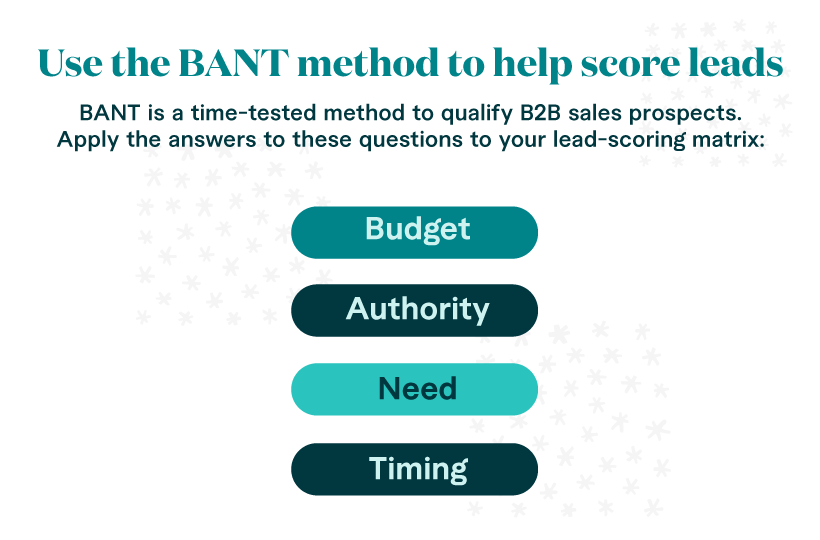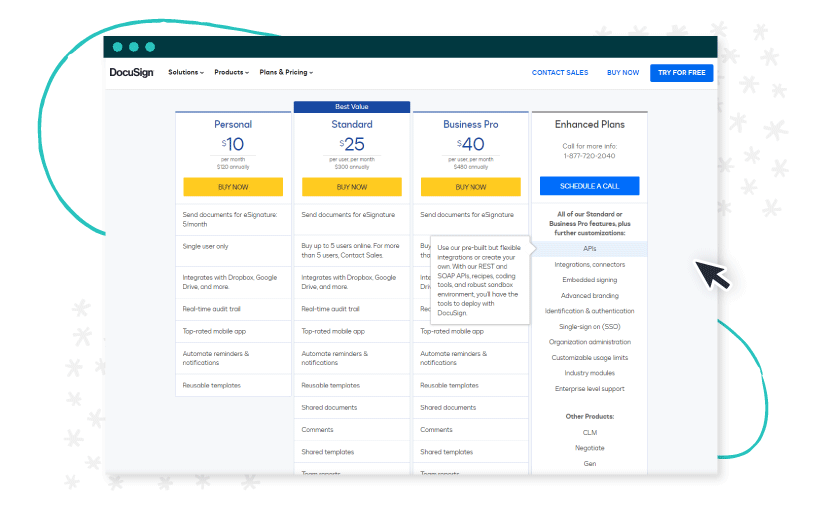Your scoring system should segment leads into two camps: MQLs and SQLs. This enables you, in theory, to put them in the proper lead nurture campaign based on where they are in their buying journey.
All you need to do next is give them fantastic content that nurtures them through the funnel until they sign on the dotted line.
Easy enough, right?
Oh, if only it were. The path to close looks different for almost every customer, especially in B2B sales, thanks to its longer, more complicated sales cycle.
And while it may not be exactly easy, the mission remains the same: Give your leads the right content at the right time to help them cross the finish line by segmenting them into MQLs and SQLs and tailoring your strategy to each.

What are MQLs in marketing?
An MQL (marketing qualified lead) is someone who has engaged with your brand but isn’t ready to buy yet. They’re top to mid-funnel users who are good candidates to receive more marketing communication from you. They want to learn more. Properly nurtured, an MQL could become an SQL.
Read More: What Is a Marketing Qualified Lead (MQL)?
What are SQLs in sales?
An SQL (sales-qualified lead) is a lead with a higher potential to close. They’ve expressed interest in your product or service and are ready to talk to a sales team member.
ClearVoice Infographic: Driving Sales With Content
How to score leads
None of this is helpful if you’re not scoring your leads in a manner that makes the most sense for your industry and solution. Hopefully, your sales and marketing teams have developed a lead-scoring strategy in tandem.
There’s no one-size-fits-all matrix for lead scoring—you can score your leads however you want, but make sure to receive input from all stakeholders. Revisit your lead scoring model often, too.
Ideally, the information you have about the user matches much of your ideal buyer persona (professional title, demographics, company revenue, etc.). Additional factors that signal someone may be MQLs and SQLs include:
- Signing up for your newsletter
- Replying to an email
- Engaging on social
- Downloading an ebook, white paper, or case study
- Booking a meeting/requesting a demo
Use the BANT method to help score leads
BANT is a time-tested method to qualify B2B sales prospects. Apply the answers to these questions to your lead-scoring matrix:
- Budget. Does the prospect have enough money to purchase your products and/or services?
- Authority. Does your contact have the authority to make purchasing decisions?
- Need. Is there a need for your products and/or services?
- Timing. How soon does the prospect want to make a decision? (the sooner, the better for you)
What type of content should you provide an MQL?
Remember, MQLs are in the top to the middle of your funnel. You want to provide them with relevant content that explains your solution and why it’s the best, but don’t go too hard at this stage—the point of marketing to an MQL is to turn them into an SQL, not to close them. At the same time, don’t want to cast too wide a net. They’ve heard of you and are interested, so show them why they need your solution.
Put MQLs in an email drip (aka lead nurture) campaign and send targeted information that briefly highlights – a) their problem and b) your solution. Then, supply them with helpful, relevant content that addresses the dilemma at hand and demonstrates how your product or service is a good fit to solve it. Types of content to serve to an MQL include:
- Blog posts. Aim for longer-form, in-depth topics. Stay away from awareness-level, 101 content. Show them something new or examine a relevant issue (or else at this stage, they’ll bounce).
- Ebooks. Ebooks are deep dives into a particular topic. As long as the information isn’t too basic for a prospect at this stage, an ebook makes good content to send to MQLs.
- White papers. A well-crafted white paper has an academic air to it. Send a white paper when you want to position your brand as an authority on an industry topic.
- Newsletters. You don’t want to sign them up for your newsletter if they haven’t opted in, but sending an MQL your most recent newsletter is a good part of an overall campaign. It’s a great way to interest and engages the prospect and give them a better look at your company.
- Video. Shy away from top-of-funnel explainers and how-to videos. Instead, offer them videos that will help them with their purchasing decision.
Toward the end of your campaign, offer your MQL a testimonial or a case study. These types of content are ideal for a bottom-of-the-funnel prospect. It will help nurture them right through to becoming an SQL.
Learn More: What’s the Difference Between Case Studies, Ebooks, and White Papers?
What type of content should you provide to SQL?
SQLs are bottom-of-funnel. They are primed to buy. The point of marketing to SQLs is to close the deal. Types of content to serve an SQL include:
- Testimonials and case studies. These are standard for Bottom-of-funnel leads. Both provide proof to the prospect that your solution works. Video testimonials are included here.
- Webinars. Send recordings highlighting how your product or service works and demonstrating your excellent customer service.
- Competition comparisons. Send a side-by-side chart or table that details your solution’s features and how they stack up to the competition.
- Pricing info and spec sheets. Give them everything they need to make this decision.
- Trials, demos. This is the ultimate bottom-of-the-funnel content: Let them sit in the driver’s seat with a free trial and/or demo.
Example of DocuSign’s pricing plans
When you segment MQLs and SQLs according to a thoughtful lead scoring system and target them with content that aligns with the stage of the buying process they’re in, you can more easily nurture those prospects into sales.
It all starts with high-quality lead-gen content
Good content is the basic building block of any successful lead nurture campaign targeting MQLs and SQLs. You could segment your leads and map them to the various stages of your funnel.
ClearVoice can help you create and publish high-quality content for lead generation. Our dedicated success managers will customize a content plan for your needs. We’re here to help your content marketing deliver real results. Reach out today.







